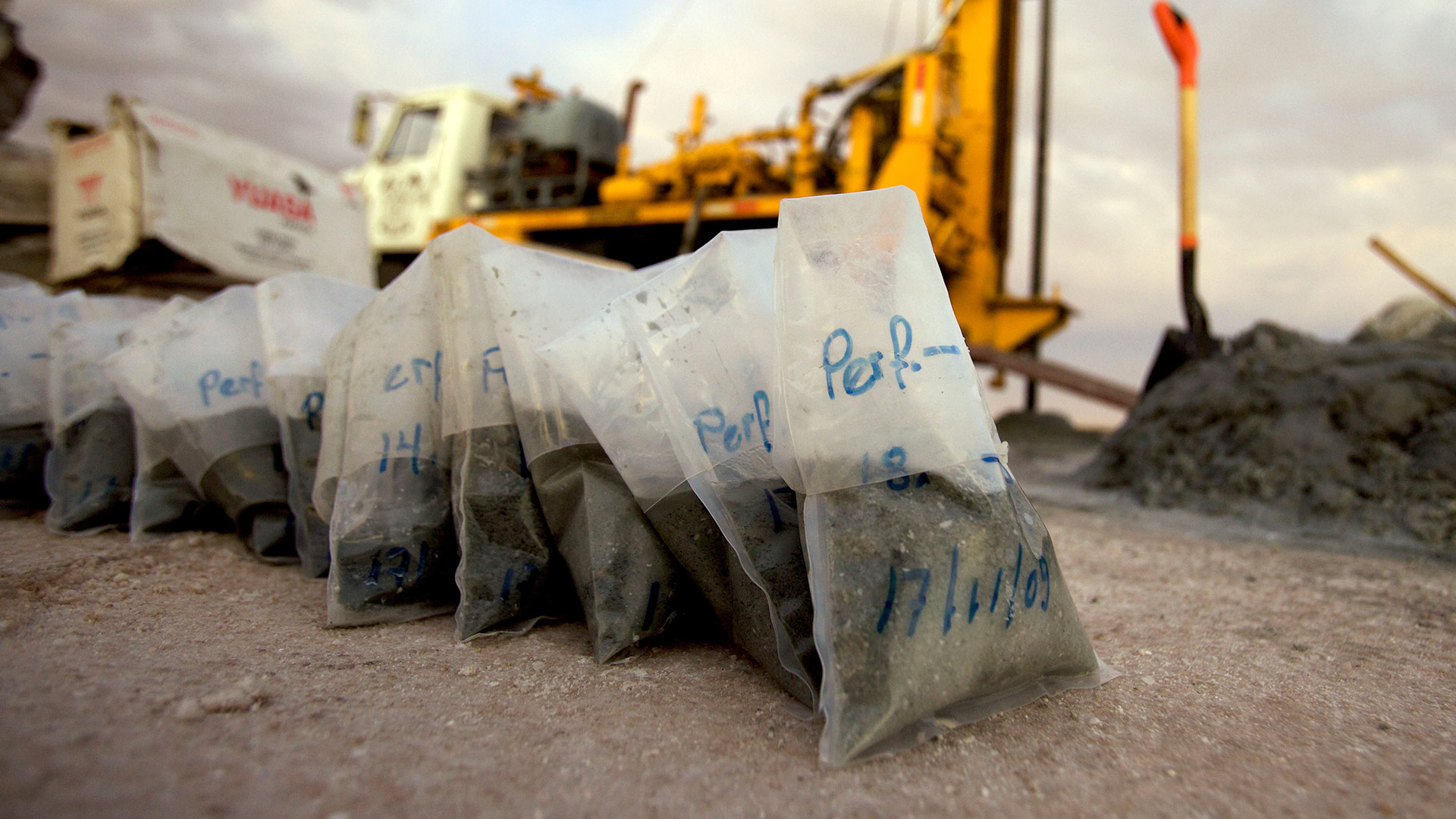

We may earn revenue from the products available on this page and participate in affiliate programs. Learn more ›
With the debut of its Model X SUV, Tesla is poised to begin dramatically ramping up production; by the end of the decade, Elon Musk hopes to produce his 500,000th all-electric car. In order to meet this staggering figure, Tesla will rely on its forthcoming Nevada-based Gigafactory, a plant dedicated to supplying Tesla cars with battery packs. But this massive demand for lithium is unprecedented; it’s unclear whether Tesla—and its partner Panasonic—will be able to meet its plan to commence Gigafactory battery production by 2017. The potential bottleneck? Lithium.
Chile, Argentina, and Bolivia possess more than 70 percent of the world’s raw lithium supply. However, due to electric battery demand for smartphones, hoverboards and, of course, electric cars, Financial Times says the global lithium market is facing a shortage that could cease the supply stream for next year.
“Raw material availability is probably the biggest challenge facing the Gigafactory outside of the need for basic demand,” said London-based consultancy Benchmark Mineral Intelligence. “It is also the only area of the electric vehicle supply chain where Tesla does not have ownership and control.”
Without the ability to control its own lithium supply chain, market expert Joe Lowry, who is the founder of consultancy Global Lithium, warns that “Tesla will pay high market prices for lithium through at least the end of the decade.”
To get a better idea of exactly how much lithium Tesla is demanding, Benchmark mineral Intelligence reports that the electric carmaker will need about 26,000 tons of lithium hydroxide annually—nearly half of the total amount supplied in the market last year.
Musk has confirmed that Tesla signed a conditional agreement with Mexico-based lithium plant Bacanora Minerals to supply lithium hydroxide. Toronto-based Pure Energy Minerals also entered into an agreement with Tesla, and plans to supply lithium materials from a new site in Nevada, located roughly three hours from the Gigafactory. Look for more lithium producers to set up operations in Nevada to attract contracts with Tesla in the years ahead.
